I’ve been writing about the absurdity and degradation of buying and selling human time for a quarter century. Sometimes it feels like whistling in the dark, but other times I get a jolt of the incredible vitality of sticking to such a basic truth in the foggy blizzard of daily news and ridiculous obsessions that dominate our culture. As has been happening with increasing frequency for me, things I’m reading suddenly cross over and connect in surprising and inspiring ways. To wit, the April Harper’s magazine has a feature article called “The Spirit of Disobedience: an invitation to resistance” by Curtis White.
For the past few years I’ve been developing friendships with people who are loyal to and involved in some kind of self-described ‘spiritual’ life, even though I’ve always been an atheist, and find most things ‘spiritual’ silly or embarrassing. Nevertheless, there’s a certain emotional and political affinity I feel with these friends and acquaintances that emerges from the fact that we share an engagement with a more complete sense of what it is to be alive, a more multidimensional experience of life than banal empiricism or self-delusional religiosity.
Curtis White’s article is one of the best essays I’ve read in a long time. It starts by recapping the polarization between Christianity and Enlightenment, discussing its obvious presence in our contemporary political world, but tracing its presence way back to colonial America (when it was a split between the Boston Unitarians and the fire-and-brimstone evangelicals in the hinterlands) and of course much further back to Europe’s own religious wars between the hierarchical churches and the philosophical humanism that was rooted in a daily life. But his point is to show how both sides of this apparent opposition share an embrace of capitalism and private property, which ultimately makes them pillars of a culture of death.
“In the end, evangelical Christianity conspires with technical and economic rationalism. In the end, they both require a commitment to ‘duty’ that masks unspeakable violence and injustice… If we live in a ‘culture of death,’ as Pope John Paul II put it, it is a culture that is made possible by the advocates of both Reason and Revelation. In the oppostion of Reason to Revelation, death cannot lose. Ours is a culture in which death has taken refuge in a legality that is supported by both reasonable liberals and Christian conservatives. Our exploitation of humans as ‘workers’ is legal and somehow, weird and perverse though it may seem, generally acknowledged as part of our heritage of freedom, and virtually the entire political spectrum falls over itself to praise it.”
White goes on to decry the commonplace praise for job creation, and the duty-bound support for militarism that is largely supported across the spectrum as well. Against this monolithic consensus he goes back to find a ‘third option’ in history, one produced by the Enlightenment too, but as suspicious of the claims of Reason (esp. the economic rationalism that defines capitalism) as it is of orthodox religion.
“At its origin is the poetic system devised by William Blake in the late eighteenth century… Christianity, for Blake, bled from Jesus his real substance as prophet/poet. Reason, or Ratio, on the other side, born with the scientific revolution, divided the world from the self, the human from the natural, the inside from the outside, and the outside itself into ever finer degrees of manipulable parts. From Blake’s point of view, both religion and reason were deeply antihuman, destructive errors.”
This reveals my own ignorance and lack of education, but I’ve been aware of the poetic power of Blake for a long time, but still haven’t read him. I also doubt my ability to get the power of it from a direct reading, since the language of that time so often leaves me unmoved. But White’s essay is another of those “Cliff’s Notes” moments where I feel like I’m getting the real meaning without having to do the work. He continues his discussion of Blake by showing how he gave rise to the whole Romantic tradition, embraced ardently by Ralph Waldo Emerson.
“In contrast to institutional Christianity, whether dull Unitarians or fiery Evangelicals, Emerson imagined that the world is held together by a spirit that is not of the Church, and certainly not of Reason, but of a direct experience of the world. Emerson made this Romantic idea American, and he gave it first to Henry David Thoreau, then to Whitman, and through Whitman to Ezra Pound, Charles Olson, Allen Ginsberg, and to so many fractured movements of the recent past and present: the 60s counterculture, the environmental movement, and New Age spiritualism, in particular. They are the heirs to the Imagination’s counter-Enlightenment, with its contempt for the hierarchical authority of the Church and its deep suspicion of what was unleashed by Enlightenment Reason.”
Here we reconnect to my personal experience of meeting people who are genuinely radical and engaged, but (to my mind) oddly committed to the ‘spiritual’. Clearly instrumental Reason has made it possible for scientists and technicians to produce the technologies of mass murder and planetary destruction, thinking all the while that they are doing something ‘good’. But the nature of the ‘spirit’ that so many of my contemporaries are so comfortable embracing has always left me scratching my head or recoiling in anxious horror.
White’s essay goes on at some length exploring this idea of ‘spirit’ in the life and work of Thoreau, even while admitting that his work is mostly lost to us as that of a old dead ‘white man’. Crucially, his engagement with ‘spirit’ produces a strategy of refusal:
“Thoreau’s disobedience is disobedience as refusal. I won’t live in your world. I will live as if your world has ended, as indeed it deserves to end. I will live as if my gesture of refusing your world has destroyed it.”
The odd serendipity of this essay is that it crosses over with a symposium on “refusal” in the blogosphere. Over at Long Sunday they’ve held a collective reading and discussion of a seminal text of autonomous marxism, The Strategy of Refusal by Mario Tronti. You might not automatically find much resonance between the hard-bitten and theoretically dense writings of Italian autonomists and the lyrical and romantic musings of Thoreau. But as White shows, Thoreau was particularly interested in the way that work was destroying life, and in that sense, offers a curious parallel, out of time and place, with the gritty industrial analyses that were produced in the late 20th century.
“Thoreau was no Marxist, but he was, like Marx, appalled by what work did to human beings. And by and large Thoreau was aware of this human damage without the benefit of experiencing the grim reality of the nineteenth-century English factory. Most of his examples are agrarian, and so his conclusions surprise us, his twenty-first-century readers, because we tend to look back at our agrarian past as a kind of utopia lost… The primary good of which Thoreau repented was the virtue of work. In work we do what is not good. The world of discipline in work is, for Thoreau, a morally inverted world. It is human nature standing on its head… Again like Marx, Thoreau saw much of the horror of work in the way it incorporated the human into the machine… The true cost of a thing, Thoreau shrewdly observes, condensing hundreds of pages of Marxist analysis into an epigram, is ‘the amount of what I will call life which is required to be exchanged for it, immediately or in the long run.’ Money does not fool Thoreau. Money always wears the face of the boss. It represents the loss of freedom and ultimately the loss of self. One is not human in the unequal world of work for exchange. One is compost in the making.”
The creative spirit that keeps us alive, that makes us yearn for a life that fully engages our humanity, our community, our ability to share and and cross-pollinate and invent and ponder and love, is forced into a series of refusals, into exodus from stupidity, banality and barbarism. In countless ways we are experimenting in our daily lives with counter-logics, with new ways of putting together our capabilities with the material world. Perhaps out of these infinite moments of experiment and hope and creative engagement, the old Romantic notion of Imagination can begin to give a new shape to our shared lives. Refusing to reproduce our own misery is an important beginning.
“We need to work inventively… in the spirit of disobedience for the purpose of refusing the social order into which we happen to have been born and putting in its place a culture of life-giving things… We’re well done with this world.”
Refusal must become assertion, perhaps not immediately, but sooner or later the fight must be joined. A culture of life and pleasure, or a society of death and fear. Hmmmm. Do I have to vote?

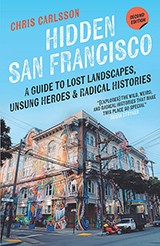

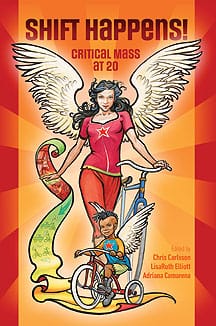
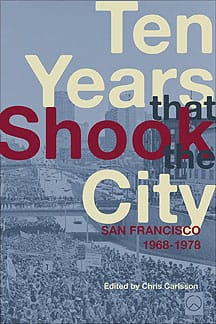
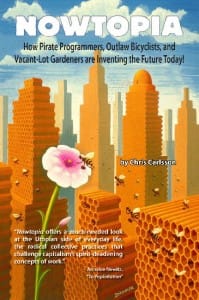
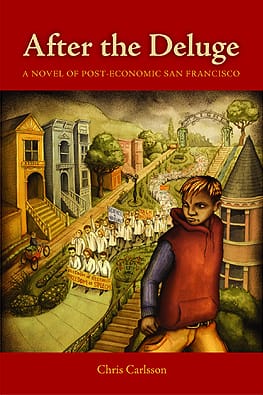
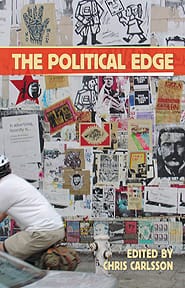
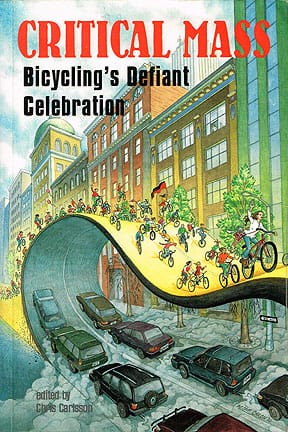
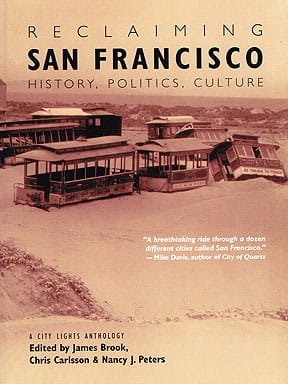
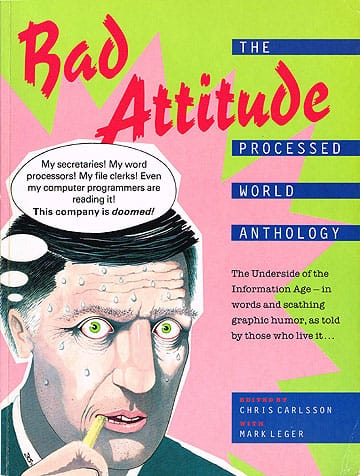
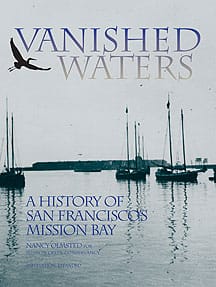
What an article to better understand today’s USA; understand, not necessarily like,
Edgar
Hey, I’m mostly a stranger to the blogosphere but found yours. Just a note to say thanks for the discussion and to observe that there are two things never mentioned in the essay but never far from my thoughts 1) Buddhism (Thoreau was called the Concord Buddha0 and 2) Autonomia, epecially Antonio Negri. His simple motto, “refuse work.”
Good to find a few more people inspired by the Curtis White essay in Harpers! In a year of blogging away at conservingconsensus.us I’ve been trying to define a politics of conserving Nature, the Constitution (especially the Ninth Amendment), and our “best democratic practices” or “participatory democracy”. White does just about everything right in that essay and I hope it resonates with more and more people.
Just a couple of footnotes to White:
No need for anyone to get bogged down in the longer allegorical poems of Blake (see my “Blake’s Four Fold Vision Explained”) but to further White’s vision of a rebirth of imagination, spirituality, spontaneity, each of us does need to make the moral commitment (see Paul Goodman on “writing”) not to self-censor and to live poetically in the present as much as possible.
The 12/8 Path between Reason & Revelation requires practices plenty plenty: music-dance, 12 steps of @@, 8 fold path of pema chodron’s red-hat Buddhism, time spent with the dogs (Socrates, Antisthenes, Diogenes) and all the poets descended from Blake, regular play with children, etc. etc. etc. Fortunately there are plenty of practices still surviving inside our deadly civilization that will bring us together to the sustainable diversity of species and cultures that awaits us on the other side of this great divide.
Thank you for your refreshing comments. I too appreciated Curtis White’s article and sent him this poem as my complement. Please enjoy the reading of To Be or Not To Be:
To Be or Not To Be
In and of itself philosophy is a means to an end–
Where we conclude becomes what we must defend.
Everyone wants to know and know we must,
In and of itself knowledge can be without trust.
Knowledge is knowable, but separating the two
Is whether we believe what’s been said to do.
When one accepts with faith what is known
Then they are recipients of what has been shown!
Like many others before and after, Sartre tried
To decipher intelligence and nature before he died.
Flawed as he was, he left many interesting thoughts
None of which matter unless they are sought.
The actual, ideal and imagination loomed in his mind
As Being and Nothingness contended his find.
Much of his life was lost in his search to know
But his existential freedom only left a utopian show.
Philosophers are great thinkers and have their place
Trying to know more than most of the human race.
Existentialism typified the effort of these scholars
Bouncing off each other with a philosophical collar.
Kierkegaard led the charge with his reactionism
To Hegel’s own philosophical abstract rationalism.
Many others followed adding their own refutations
Making reconciliation more unsolvable stipulations.
Alongside Sartre was a colleague, lover and friend,
De Beauvoir stayed close beside to his dying end.
We are what we choose–blest with free choice,
She underscored his thoughts with a different voice.
Her staunch feminist view after The Second Sex
Emphasized one’s background and social context.
All are free to transcend and alter conditions found
By dominating and utilizing them until fully sound.
Both are gone now but their thoughts remain alive,
While speculators search for truth others just connive.
Dasein or not to be is always the question at hand
And we each keep on struggling hard to understand.
Philosophical enlightenment challenges and rewards,
But only the wise person can indulge what they afford.
If reason leaves one stranded alone in the universe
What is left for him to face man’s unusual curse.
No matter what philosophy we use to think or behave,
If there is nothing else, then all is lost that logic gave.
Freedom vanishes with reason leaving behind its rubble,
While skeptical criticism shows conclusions of only stubble.
Truth emanates from Being, the Maker of us all,
Who is more than Prime Mover attending the original fall.
God’s existence never needs defending or proof of reality,
Hope and faith are adequate enough to face our mortality.
Johnny W. Ferguson
johnnyjwf@earthlink.net
Thank you for your very thoughtful posting. I, too, feel this way, and wanted to recommend another book that might speak to your interests: E. P. Thompson, Witness Against the Beast: William Blake and the Moral Law. You or your readers might know Thompson as the late author of The Making of the English Working Class. Thompson does an admirable job of explaining what he sees as a socially radical form of Christianity that informs Blake’s thought. In particular, Thompson expounds upon Blake’s antipathy toward Reason as the domain of civil institutions that can be tainted by their own violent interests. (A position that oddly foreshadows Adorno’s, but centered on a radical adherence to Christ’s teachings.)
I read your postings, having found you through your extremely intelligent review of Retort’s book, Afflicted Powers. I am an art historian who studied with one of the Retort authors, T. J. Clark, and I very much enjoy your viewpoint.
While we’re on the subject of spirituality and social activism, check out the Quakers. I am not a member of any organized church, but I send my daughter to a Quaker school, and I very much admire their combination of spiritual awareness, pacifism, and genuine social activism.
Hi Chris,
I read the Curtis White article too and also found it extremely inspiring.
While I’ve found some of William Blake’s cosmological musing obtuse and impenetrable, his shorter poems are the only poems I’ve ever memorized by heart.
When I was living in Seoul, one of my good Korean comrades there, who at the time was discovering English language writings about the Situationist International and the spirit of ’68 (this was in the mid-1990s and at that time, coming after 3 decades of censor-happy military dictatorships, almost nothing about that era had been tranlated into Korean), showed me his favorite Enlish language poems in a Penguin anthology of the 19th century British Romantic poets. He pointed to the “Garden of Love” and told me he thought it perfectly summed up the radical anti-Christian critique of Feuerbach and Marx in just 3 short stanzas. I reread it and wholeheartedly agreed. Here it is:
GARDEN OF LOVE
I went to the Garden of Love,
And saw what I never had seen:
A Chapel was built in the midst,
Where I used to play on the green.
And the gates of this Chapel were shut,
And “Thou shalt not” writ over the door;
So I turned to the Garden of Love,
That so many sweet flowers bore;
And I saw it was filled with graves,
And tombstones where flowers should be;
And Priests in black gowns were walking their
rounds,
And binding with briers my joys and desires.
——————————————————————————————-
I’ve found equally inspiring passages in Whitman’s
“Leaves of Grass,” as well as Kenneth Rexroth’s accounts that attribute magnanimity and imagination as the truly liberating aspects of great literature.
I agree that the Beats, and Ginsburg in particular, attemtped to fight the banality of the rise of consumer culture in the post-WWII period and offer a contemporary spiritual version of Thoreau’s vision. Reading many of these writers–Blake and the Romantics, Emerson and Thoreau, Ezra Pound (despite his wacky political ideas) and the Beats–radicalized me before I’d ever read a single word of radical political theory. When the wooden, yet entirely useful and necessary, language of revolutionary theory and critique tires my eyes, I still turn to poets and writers like those above to reaffirm my humanity and rekindle my spirit.
Gifford